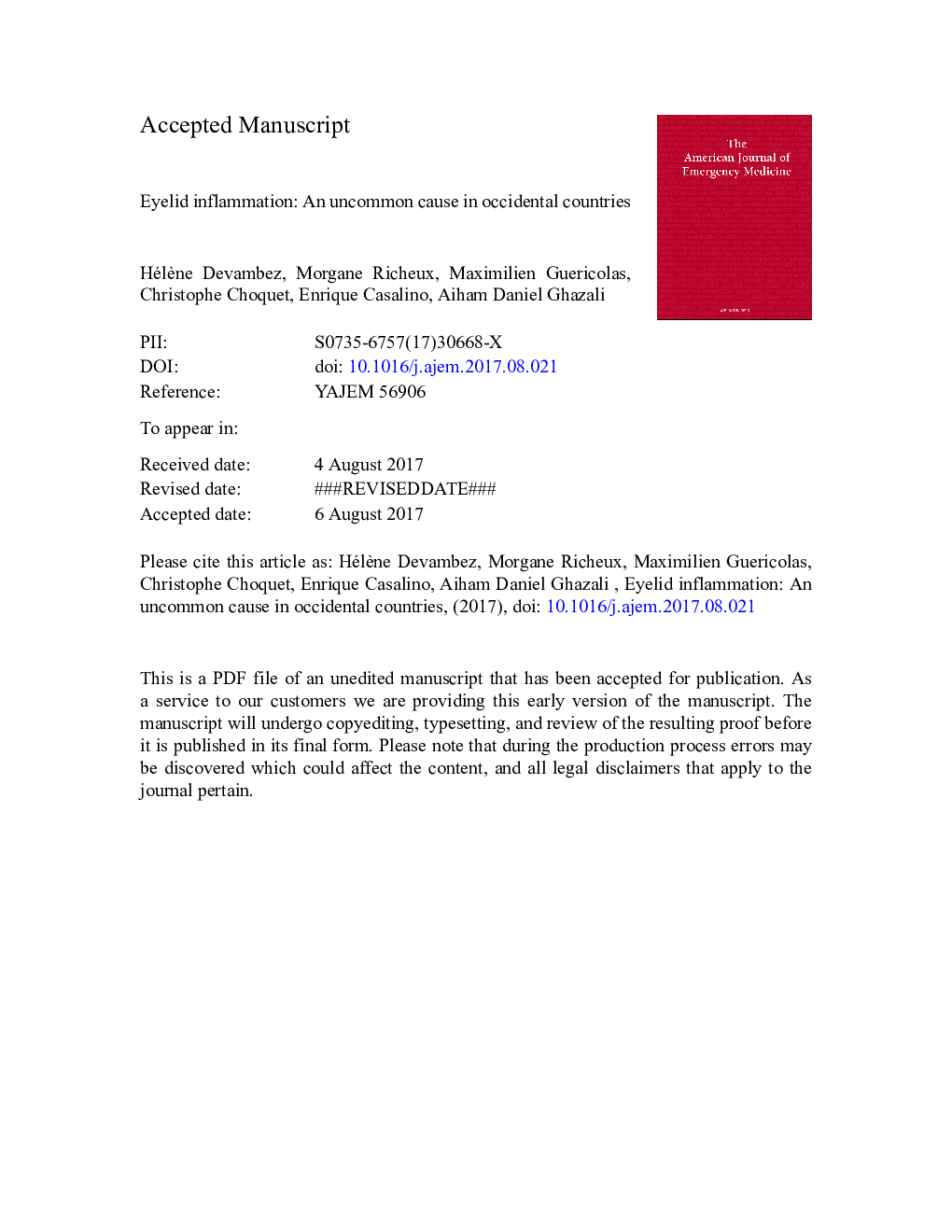| Article ID | Journal | Published Year | Pages | File Type |
|---|---|---|---|---|
| 8717732 | The American Journal of Emergency Medicine | 2017 | 13 Pages |
Abstract
There is an increase in travelers returning from tropical countries. Consequently, travel-associated dermatoses are increasing in non-endemic countries. Context of travel and typical clinical presentation strongly suggested to evoke a cutaneous myiasis. The typical furuncular lesion is a papule or nodule with a central punctum that exudes serosanguinous or purulent fluid. Ultrasound can be used to confirm the diagnosis. Treatment consists of three techniques: methods producing localized hypoxia to force emergence of the larvae, application of toxic substances to the eggs and larvae, and mechanical or surgical debridement. Surgery and antibiotics are usually unnecessary. Prevention of furunculous myiasis is based on vector control and individual actions to improve hygiene.
Related Topics
Health Sciences
Medicine and Dentistry
Emergency Medicine
Authors
Hélène MD, Morgane MD, Maximilien MD, Christophe MD, Enrique MD, PhD, Aiham Daniel MD, PhD,
